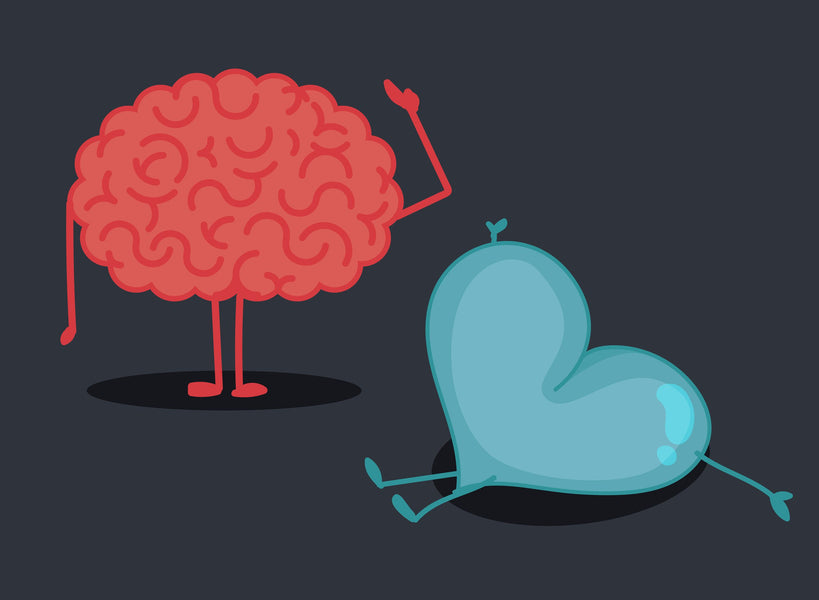
Some time in the next month or so I’ll become a mother for the second time. I’m currently 35 weeks pregnant, and with my very noticeable, ever-expanding belly, I find myself having regular conversations with people about the pending arrival. My well-meaning friends keep telling me horror stories about their experiences in labour and battlefield tales from the front line of being parents to both a newborn baby and a toddler at the same time. “It’s the hardest thing I’ve done in my life,” seems to be the general consensus from both mothers and fathers that I’ve spoken to.
Their words have planted a seed of worry in my mind and last night when I awoke with twinges and aches in my belly that could have signaled the start of labour, I felt my anxiety levels rise. “I’m not ready yet,” I thought. The more I reflected on the horror stories I’d been hearing, the more anxious I felt, until I found myself unable to go back to sleep and ruminating on thoughts about everything from unpacked shampoo bottles that I want to take to the hospital, to how my three-year-old-son is going to adjust to becoming a big brother.
The twinges didn’t build into labour and this morning, as I’m writing these words, my baby is still happily ensconced on the inside. But last night’s experience got me thinking about a recent interview I did with a neurophysiologist named Fabrizio Benedetti from the University of Turin, who is a leading researcher on the placebo response, and an expert on how our mind can influence our body.
In 2014 Benedetti wanted to test just how powerful the words of others can be by studying the nocebo effect, which is when you have a negative response to a harmless substance you believe is harmful. Instead of using fake pills for his experiment though, Benedetti planted a “social placebo”. He took 121 students to a medical research facility located 3500 meters above sea level in the Italian Alps and deliberately started a rumour about the risk of mountain sickness and the possible occurrence of severe headache. He informed only one student that he needed to bring a specific dose of aspirin in case he succumbed, giving the young man a brochure depicting a headache sufferer at 3500 metres lying on a bed, grimacing, and taking pills.
It took just one week for Benedetti’s “social infection” to spread, during which time another 36 students contacted the university asking for more details about high altitude headache and the doses of aspirin needed for their trip. Unbeknown to these students, they would become Benedetti’s nocebo experimental group. On the day of the trip, 86 percent of those in the nocebo group got a headache versus only 52 percent in the control group. Those who had heard the rumour were also the ones who suffered the worst headaches.
While it is largely thought that the nocebo response works by directing our attention toward symptoms that would have been there anyway, it is interesting that analysis of the student’s saliva in Benedetti’s study revealed a genuine biological response to the low oxygen conditions including a proliferation of the enzymes associated with altitude headache. It’s also interesting that the students in the nocebo group showed an increase of the stress hormone cortisol, though the students in the control group did not, indicating that the stress hormone rise was due to the anxiety primed by the rumour.
Over the last decade, negative suggestion has been shown to cause people to experience negative symptoms in treatments for everything from headache, to multiple sclerosis, fibromyalgia, Parkinson’s disease and depression. It’s also interesting that reviews have estimated that anywhere from 4 – 26 percent of patients who receive a placebo (fake treatment) in trials discontinue their use because they think they are experiencing adverse effects. But what I find particularly thought provoking about Benedetti’s study in the Italian Alps is that it demonstrates the existence of a “social nocebo” – where our friends, colleagues, family members, and doctors can communicate negative expectations that result in a biological response. “The propagation of negative and positive expectation could be very important in illness in general and in the generation of pathology or disease,” Benedetti told me.
My own friends and family members have meant well when they’ve shared their experiences of child birth and the challenges of newborn parenting with me, and as I’ve written previously, I’m not an advocate of sugar coating things. I like to be fully informed so I can plan and prepare. But over the next few weeks, as I brace myself for this next stage of my life, I’ll be making a conscious effort to not only listen to these war stories, but also pay attention to and seek out the good stories so I can cultivate a balanced view of things. As for my anxiety-fueled sleeplessness last night, I decided to use my meditation and mindfulness techniques to reset my ruminating and mind, and thankfully, was able to get back to sleep.





 The Connection (DOWNLOAD-TO-OWN)
The Connection (DOWNLOAD-TO-OWN) My Year Of Living Mindfully - Book
My Year Of Living Mindfully - Book




